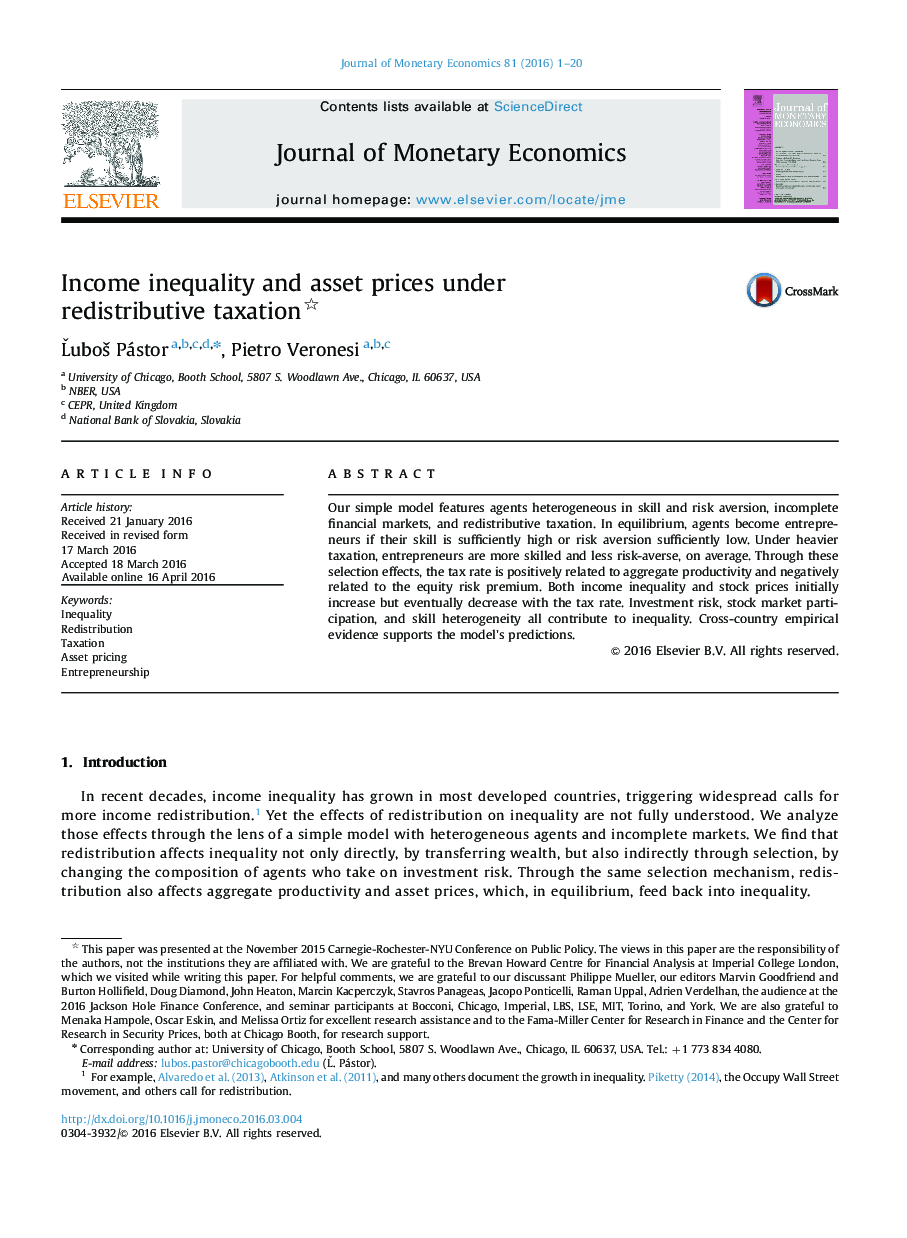| Article ID | Journal | Published Year | Pages | File Type |
|---|---|---|---|---|
| 967399 | Journal of Monetary Economics | 2016 | 20 Pages |
•Selection effects: agents with high skill and low risk aversion become entrepreneurs.•Under heavier taxation, entrepreneurs are more skilled and less risk-averse.•Under heavier taxation, aggregate productivity is higher and the equity premium lower.•Income inequality and stock prices are hump-shaped in the tax rate.•Components of inequality: investment risk, market participation, skill heterogeneity.
Our simple model features agents heterogeneous in skill and risk aversion, incomplete financial markets, and redistributive taxation. In equilibrium, agents become entrepreneurs if their skill is sufficiently high or risk aversion sufficiently low. Under heavier taxation, entrepreneurs are more skilled and less risk-averse, on average. Through these selection effects, the tax rate is positively related to aggregate productivity and negatively related to the equity risk premium. Both income inequality and stock prices initially increase but eventually decrease with the tax rate. Investment risk, stock market participation, and skill heterogeneity all contribute to inequality. Cross-country empirical evidence supports the model׳s predictions.
